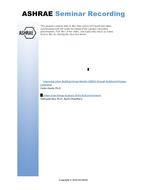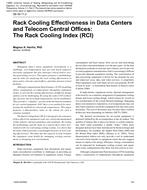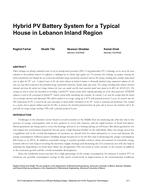Click here to purchase
This paper compares and quantifies the energy, environmental and economic benefits of various control strategies for recovering heat from a supermarket’s CO2 booster refrigeration system. The recovered heat is used for space heating, with the goal of displacing natural gas fueled boilers. A theoretical model with thermal storage is presented based on a previous validated model from an existing refrigeration system in a food-retail building located in the UK. Six heat recovery strategies are analysed by modifying thermal storage volumes and pressure levels in the gas-cooler/condenser. The model shows that a reduction of 30-40% in natural-gas consumption is feasible by the installation of a de-superheater and without any advanced operating strategy, and 40- 50% by using a thermal storage tank. However, the CO2 system can fully supply the entire space-heating requirement by adopting alternative control strategies, albeit by penalising the coefficient of performance (COP) of the compressor. Results show that the best energy strategy can reduce total consumption by 35%, while the best economic strategy can reduce costs by 11%. Findings from this work suggest that heat recovery systems can bring substantial benefits to improve the overall efficiency of energy-intensive buildings, although trade-offs need to be carefully considered and further analysed before embarking on such initiatives.
Citation: 2020 Virtual Conference Papers
Product Details
- Published:
- 2020
- Number of Pages:
- 8
- Units of Measure:
- Dual
- File Size:
- 1 file , 2.3 MB
- Product Code(s):
- D-VC-20-C028


